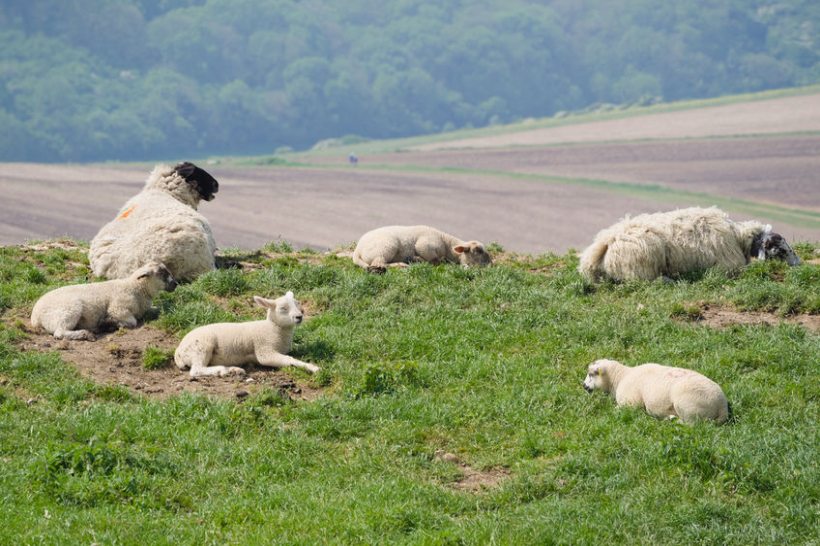
The imposition of tariffs and regulatory checks in the event of a no-deal could lead to millions of lamb carcasses going to waste, a rural group warns.
A no-deal after the transition period ends on 31 December 2020 will have a detrimental effect on the UK farming sectors most dependent on trade with the EU.
Between 2013-17, 82% of the UK beef and 78% of the dairy/eggs and fruit and vegetables that were exported went to the bloc.
But it is the lamb sector that is considered to be one of the most vulnerable, with 89% of all sheep-meat exports finding their way to the EU.
Estimates by the Country Land and Business Association (CLA) show that if exports remain at 2019 levels, but tariffs are imposed, about 3 million lamb carcasses normally destined for the EU would not find a market there.
Millions of lambs would have to come back to the UK market, leading to depressed prices and nearly two million carcasses unsold.
The CLA says that even with a dramatic increase in domestic consumption, and the sector stretching the UK’s cold storage capacity, the possibility of millions of lamb carcasses going to waste hangs over the sector.
And with a greater proportion of UK-produced lamb staying in the UK market, farmers would face a dramatic drop in the value of their lambs.
Sarah Hendry, the director general of the CLA, said many British sheep farming businesses were facing 'the most enormous pressure'.
"They fed the nation through lockdown and are on the cusp of readjusting their business for a new life outside the Common Agricultural Policy. Now many face the complete collapse of their market."
Despite long-promised ‘mitigation measures’ from the government to protect the areas of farming most vulnerable to a no-deal, the industry is yet to see any details.
Ms Hendry urged the government to put in emergency financial support in place for those farming businesses on the cliff edge.
“If the EU imposes tariffs, many farmers will no longer have customers for their produce and their businesses could easily collapse.
"Lamb is one of the most obvious sectors to be hit, and a no deal could see them affected in spring next year when they go to market," she said, adding malting barley and beef also faced losing their market.
While most UK fruit and vegetable businesses are focused on the domestic market, meaning exports are minimal, large parts of UK farming rely on outside trade, mostly with the EU.
At the same time, many EU farmers rely on the UK market. Over 80% of UK meat imports and nearly 100% of imports of dairy and eggs came from the EU during 2018.
British consumers buy a wide range of goods imported from the EU, particularly fresh fruit, vegetables and meat. Overall, the EU exported around £38.2bn worth of agri-foods to the UK during 2018.
Ms Hendry said while it was right to have a tough negotiating strategy in UK-EU talks, it was also right to highlight the importance of the UK market to many European farmers.
"But we should not lose sight of the importance of the EU market to British producers," she said, "And if no deal is possible, then government must come forward with robust emergency support measures to protect farmers until a deal is eventually struck.”
